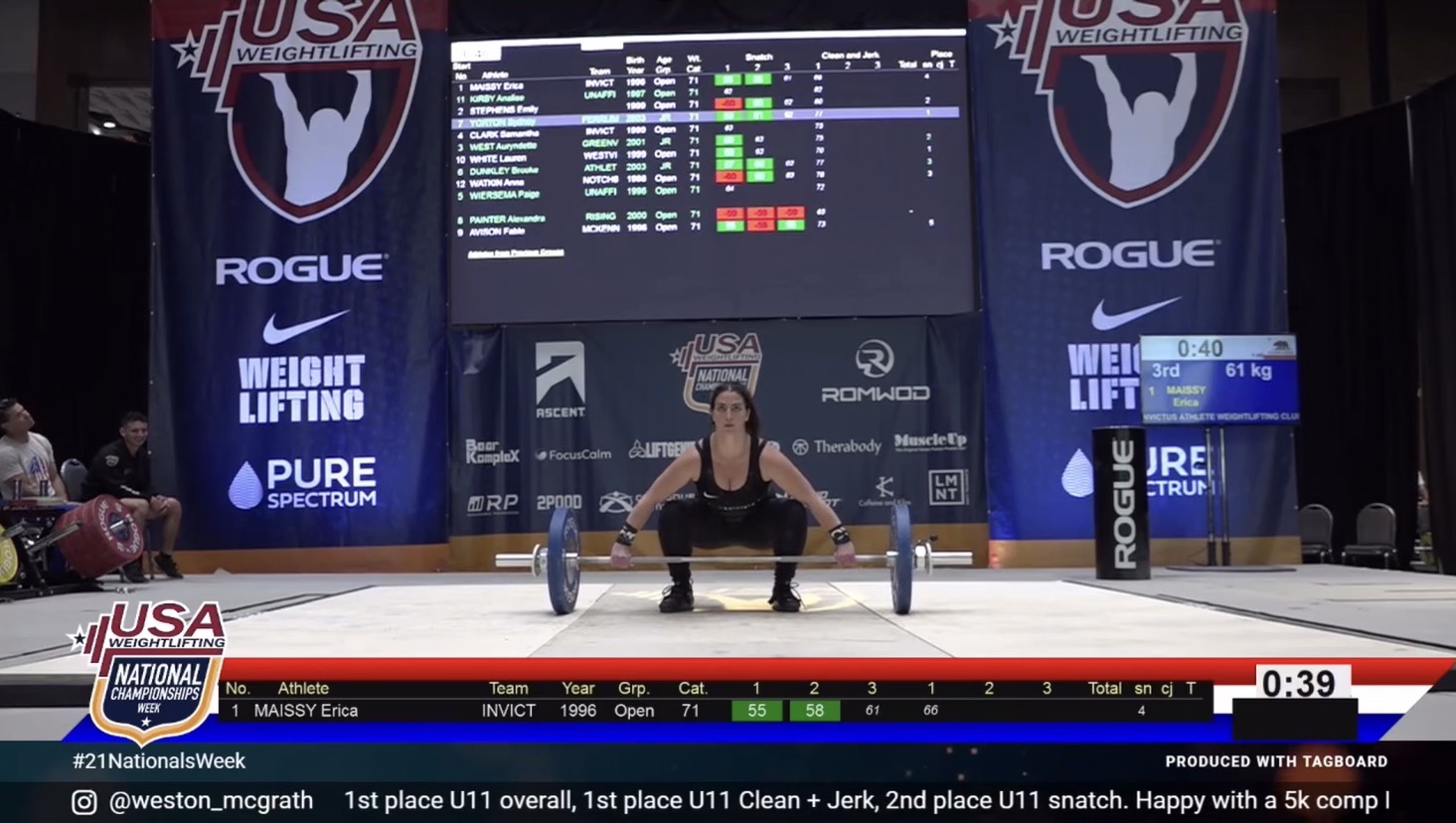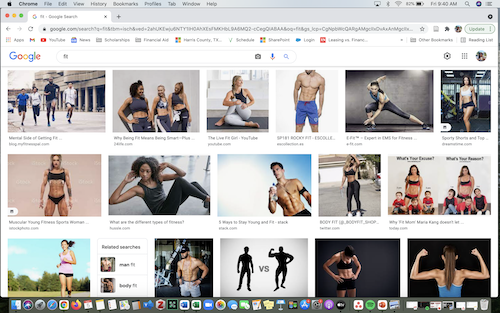
Who Should be Considered an ‘Athlete’?
Written by Samie Acevedo
What’s the first image that comes to mind when you hear the word athlete?
Do a quick Google search and type the word “athlete”. What pops up? On my feed, I see images of track athletes, Olympic Weightlifters, and the occasional gymnast. All of them are lean, muscular, and well, athletic-looking.
Athletic Body

“Of course,” you think. “These athletes are the best of the best. Of course, they generate more media attention. If you want to be elite in a sport your body has to fit the shape it needs to support your athletic endeavor.”
Elite sprinters have powerful lower bodies. Top-of-the-line triathletes have long lanky bodies. Basketball players are tall and lanky and the best Olympic weightlifters are compact and muscular. While there are some exceptions, these athletes did not always look this way. Their bodies grew and adapted to their sport. We just SEE them in this image, because it is what perpetuates throughout the media.
See where I’m going with this?
Somewhere along with these images, those of us who are not at the elite level, who are just starting out in sport or fitness think, “I don’t LOOK like THAT. So I can never BE THAT and I shouldn’t try.”
Hold up.
You are telling me you aren’t going to try a new sport or chase those competitive goals…because you don’t LOOK like what an “athlete” looks like? A friendly reminder…an athlete is an athlete because of what they achieve with their body…not on what they LOOK like. Fitness and sport is NOT as exclusive as the media has you believe. Just because we are not seeing bodies like yours or mine on the cover of magazines or Instagram, that does not mean that we are not allowed to enter the space of fitness. It does not mean that we are not athletes too. Maybe not at an elite level, but that is because of skill, talent, effort and time. Not because of the asthetic of our bodies.
You hear it all the time, “I’ll start that fitness class when I am more fit.”
Let’s deconstruct this, “when I am more fit” part. How do you define fitness? Is it by how much you can lift or how fast you can run? Is it by how muscular your body is or how low your body fat is? A combination of both? Do another Google Search and type “fitness” or “fit.” Now, pictures of extremely muscular and/or thin people pop up on my screen.
Fit Body

I’ve been involved in sport and fitness for 22 of my 27 years of life. And in those years I have met people of all ages, shapes, and sizes who do not fit the Google search image of what it means to be fit. These everyday people kick butt in any foot race or push-up contest. I’m not trying to bash on those who care about what their body composition looks like, but I do want to offer another viewpoint in this body image-obsessed industry. Because the narrative that body image equates to fitness and health is dangerous and exclusive. Fitness has been associated with thinness and/or body composition and that is such a limiting definition of fitness. Quite frankly, creates a barrier to entry for those who benefit from the fitness space. Fitness, wellness, and health is a multifaceted realm. For some, fitness is all about body composition, but that is not the only motivation behind starting a fitness and athletic journey. It’s just the limited narrative we have been offered.
So let’s bust some myths right now. Body composition is NOT an indicator of health or athleticism. Does this tell us all we need to know about their internal health? NO. Does this tell us anything about their athletic prowess? NO.
So why are we all comparing our bodies and athletic abilities to an image we see online? Why is body composition so prominent and hyper-focused in the fitness and wellness space? This feeds into the sentiment that if we do not have abs, muscles, or zero percent body fat, we are not allowed to call ourselves “athletes”. With all due respect to that train of thought, it is WRONG in assuming that fitness and athleticism are all about body composition.What if we dared to redefine what it means to be an athlete? What if when we tell you we are athletes the message is that we place more value in what our bodies are capable of than what they look like. When we call ourselves athletes, what we are showing you, is that we place value in our work ethic and we are constantly working to build our body and mind to achieve our goals. When we tell you, “I’m an athlete” we are SHOWING you that our goals take precedence over the latest beauty trend.
There is an example of someone who felt she was not allowed to call herself an athlete. Invictus member Erica started CrossFit for her health and to get to know people. She then wanted to try out Olympic weightlifting and started taking Invictus weightlifting classes. She was hooked.
One afternoon at our regular Talking Bodies group meetings, we were chatting about Olympic weightlifting and the conversation of competition came up. She was hesitant to compete because she felt that she wasn’t a real athlete. She felt that only real athletes were allowed to try. We talked things through and I asked her, “How do you think those “athletes” got started? Do you think they started out as athletes? Even ‘natural born athletes’ had to start somewhere. So why can’t you try? Everyone has to start somewhere.”
Erica took the leap and went for it and has since competed in multiple competitions. Here’s what she had to say about her experience.
“So, I’ve been mulling over some thoughts about identity that I wanted to put on proverbial paper.
Despite how much lifting has brought to my life in the past few years, particularly through the pandemic – structure, focus, community – and despite my dedication to it, I never would have called myself an athlete. The degree to which that has to do with body image is a whole separate Instagram caption novella, but there’s been this discordance between who I am and my perception of myself that I’ve been trying to rectify. I’m realizing that no certain physique or time spent in the gym makes you an athlete. As cliche as it is, your mindset makes you an athlete; committing to becoming a slightly better version of yourself every day makes you an athlete. Honestly, the hardest part was just admitting to myself that I had a goal that scared me. Fear told me this was just a hobby, I wasn’t fit/thin/dedicated enough to be a “real” athlete. The biggest of shout-outs to @sam1iam and @tlkbodies for convincing me I was an athlete all along, and of course coach @lilrickyt_2 and so many others for the support along the way. Sooo to make a long story longer – the impetus for sharing all this was that I officially qualified for USAW U25 Nationals this summer!
Upon reflecting on my progress, I found a video I shared from a local Oly comp I entered almost 4 years ago – albeit my technique was cringe and I wasn’t nearly as strong, but I don’t want to look at that younger me with any condescension. That video feels like a “before” now, but at the time, that girl was my after photo. She was finally beginning to overcome health and body image struggles, placing value in strength over thinness, and finding her place in a community that prioritized physical/mental/spiritual health. It’s exciting to see how far I’ve come from that version of me, but I’m learning that the most vital part of personal growth is reminding your self-image to catch up with the person you’re growing into. I can’t wait to look back fondly on 2021 me and all she had left to learn, but in the meantime, I’m committing to make that future me proud. If you made it this far, thanks for being on this journey with me.” ❤️
We all couldn’t be more proud of Erica. Not just for her athletic accomplishments, but because she dared to try. She dared to believe in herself and that YES, she IS an athlete.
Don’t let some Instagram algorithm tell you who should be called an athlete because of how “hot” their body looks. This is not to take away from the appreciation of a muscular body. Our fitness is developed by us and through our body in REAL LIFE. We don’t get any fitter through Instagram. Whatever your health goals are, I hope you are able to realize that YOU get to take control of your health and what it means to be healthy for YOU. And I hope that you always dare to TRY.
Wao, that’s really amazing to see this athlete related post here.
The term “athlete” traditionally refers to individuals who engage in physical activities that require skill, training, and competition. However, the definition of an athlete has evolved over time to encompass a wider range of activities and abilities and also use https://efficientessays.com/ site to have efficient essay work there. Practitioners of martial arts who engage in training and competitions that require discipline, technique, and physical prowess. Athletes in individual sports such as track and field, golf, swimming, and tennis.
No doubt, the term “athlete” can apply to anyone who dedicates time and effort to improving their physical abilities and competes in their chosen field. The evolving nature of sports and activities means that athletes come in many forms, and the recognition of their dedication and skill varies based on the context of their chosen discipline.
Thanks for your opinion. I will add that I firmly believe that anyone with the courage and determination to train and compete in sports should be considered an athlete. Sports are about pushing limits, promoting teamwork, and showcasing individual skills, and in essay examples at https://eduzaurus.com/free-essay-samples/why-should-transgender-athletes-compete-in-sports/ is rightly said that one’s gender identity should not diminish values. Allowing transgender athletes to compete in sports promotes inclusivity and creates a level playing field where everyone is given equal opportunities to succeed.